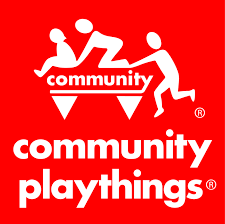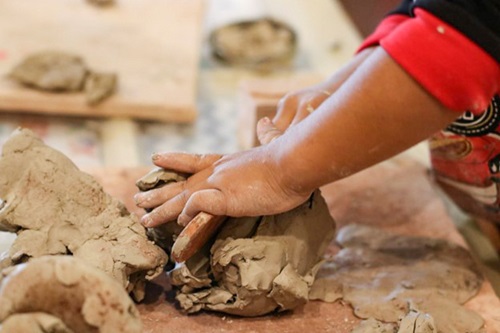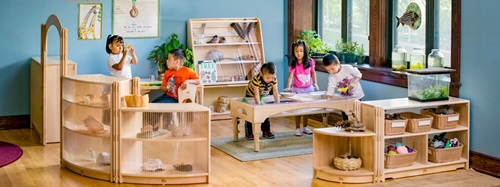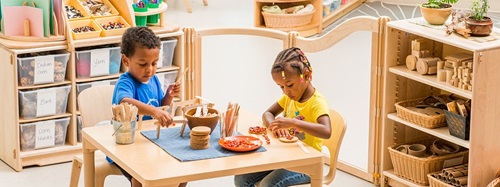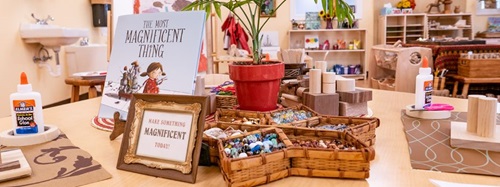An Approach for All Children: Reinterpreting the Reggio Emilia Approach in the USA
| March 2009Since approximately 1993, I have had the wonderful, ongoing and evolving experience of working with various teachers, administrators, and programs exploring, adapting and reinventing the principles and practices of the Reggio Emilia Approach to early learning within some of Chicago’s Community-Based organizations and public schools.
I have heard others question the value of the Reggio Emilia Approach’s usefulness, practicality, and potential within the North American context. Furthermore some question its realistic use with children who are at risk or from low-income communities, as well as its practicality within large bureaucratic educational systems for young children such as Head Start, subsidized Child Care, or State Pre-kindergarten programs.
Experiences with principles and practices of the Reggio Emilia Approach within the Chicago area and its programs have been effective and beneficial for children, teachers, and parents as the learning process is embedded in, supported by, and promoted through experiences involving relationships, communication, creativity, and context. Each and all are essential to meaningful and complex learning.
Before sharing more about the Chicago experiences exploring and innovating the Reggio Emilia Approach, discussing and describing this particular approach is important. This approach uses social constructivism along with symbolic languages to support and sustain learning. It pays exceptional attention to the learning process. In Insights and Inspirations from Reggio Emilia: Stories of Teachers and Children from North America, (2008) Lella Gandini highlights the following key principles of the Reggio Emilia Approach:
- The image of the child: All children have preparedness, potential, curiosity
- Children’s relationships and interactions within a system
- The role of parents: Parents are an essential component of the program—a competent and active part of their children’s learning experience.
- The role of space: amiable schools
- Teachers and children as partners in learning
- Not a pre-set curriculum but a process of inviting and sustaining learning
- The power of documentation
- The many languages of children
- Projects: Projects provide narrative and structure to the children's and teacher's learning experiences (p.. 25-27)
Many educators from the USA, as well from countries all over the world, have visited the schools of Reggio Emilia or heard presentations by Reggio educators in order to further understand the learning process and its connections to experiences, communication, context, and creativity. Just last May, 50 Chicago area educators participated in a USA-Five State Study tour with approximately 200 educators from Arizona, California, New Mexico, and Missouri.
This type of learning expedition occurs often in Reggio Emilia, Italy. Additionally seminars related to Reggio Emilia often occur within the USA. One such example is an annual conference held by the North American Reggio Emilia Alliance (NAREA). Often educators from the US (and at times from Reggio Emilia) engage in presentations and dialogue as ideas and strategies for learning are exchanged. Lastly, an exhibit, The Wonder of Learning: The Hundred Languages of Children, created by Reggio educators, travels throughout the United States in order to offer another type of learning opportunity as extraordinary documentation of children’s ideas, experiences, and learning processes are portrayed. This exhibit often is accompanied by a series of professional development opportunities for area educators. NAREA is, along with Reggio Children, the coordinator of the "Wonder of Learning Exhibit" which plans to be in Chicago from July through December of 2010.
Now I would like to return to the Chicago area experiences inspired by Reggio Emilia, in the past few years. There are various types of programs in the Chicago area exploring aspects of the Reggio Emilia Approach in harmony with their own interpretations and contexts. Some of those programs are from the suburbs, some from the city, some are from affluent communities and some from low-income communities. I would like to focus on experiences exploring Reggio elements within some of Chicago’s lower-income, inner-city communities. These include programs such as Early Head Start, Head Start, Subsidized Child Care, and State Pre-kindergarten. The age range is from infants through approximately 10 years. Many of these programs had contracts with and were monitored and accountable to various city, state, and/or federal departments.
One may ask, why would programs providing care and education for children from low-income communities want to explore and pursue principles and practices of the Reggio Emelia Approach when these children need more direct experiences with advancing academic skills where special emphasis is given to literacy and math? The Chicago programs exploring Reggio elements included meaningful literacy and math experiences that were not necessarily driving forces but which became a part of the idea of children having the potential for expressing their process of exploration and learning through many different languages. The rational for pursuing Reggio elements and being inspired by the Reggio approach was to support and provoke children to become problem solvers, decision makers, negotiators, collaborators and good communicators who could express themselves in many ways. Additional value that developed as a result of exploring principles and practices of the Reggio elements within our own Chicago community context was that this approach showed a powerfully strong and unconditional respect for children and their ideas, feelings, experiences, and connections within their life. At times children from low-income communities are viewed for their deficits and not for their capabilities and potential. Often there is too much focus on memorization and redundant learning. There should be higher expectations for children from low-income communities. They need opportunities for deeper thinking, too, and not only learning or catching up on basic skills.
Exploring the Reggio approach, moreover, invited and encouraged all adults involved— teachers, administrators, and parents—to be thinkers, communicators, creators, collaborators, problem solvers, and negotiators as they become more thoughtful and reflective.
At Chicago Commons, a multi-site social service agency, we began with the following elements:
- Image of the child as capable, curious, eager to learn and wanting to socialize
- Environment which provokes exploration and experimentation, problem solving and negotiation, communication and collaboration while promoting a balance between comfort and stimulation.
- Materials and languages that support children’s communication and/or understanding of ideas, feelings, and experiences; to explore aspects of quantitative thinking; as well as exploring a sense of identity and community
- Documentation that shows children's ownership of their work, shows the learning process, the use of written communication, and helps to make meaning of an experience
- Emergent Curriculum involving the use of listening, observing and documenting in order to organize learning experiences for children based on both children’s and teachers’ learning interests and investments
- Parent Partnerships where the parents’ voice is heard in the school, there is a link between home and school and parents actively participate and share their perspective
- Collaboration which involves respecting and including everyone’s perspective while working together rather than in isolation
- Professional Development that is ongoing, intentional, and reflective while such qualities as dialogue, hearing other’s perspectives, having outside influences and trying new experiences are encouraged
Eventually other areas of focus were addressed in our work with teachers and professional development such as:
- Listening and observing to develop emergent curriculum with short or long term studies
- An Organizational Structure where roles, responsibilities, meeting structures and professional development support learning for all
- The child, parent, and teacher are all learners
- The teacher is viewed as a researcher who studies and seeks to further understand the children and their learning processes
- Identity and community are involved using the richness in both as they promote a strong sense of context for learning.
- Thinking about time which includes children’s sense of time, adult's sense of time. and seeing the value in “slowing down”
Many of these same elements have been and continue to be explored within the Chicago Public Schools inspired by the Reggio Emilia Approach.
Unfortunately there have not yet been adequate resources to do a formal study of the impact of this approach within Chicago area programs, but there have been many anecdotal experiences that show a new respect for children’s and adult’s learning. One powerful aspect of this approach is that it further develops a disposition for learning for both children and adults.
Reflecting on the past years of exploring and innovating the principles and practices of the Reggio Approach within the low-income communities of Chicago, I have developed examples of lessons learned from these rich experiences. They are as follows:
- Pay attention to and respect the process of learning and value the inquiry process with and for children and teachers. Learners (both children and adults) need time to explore, listen, think, talk, observe, reflect and react.
- It is important to express hopes and dreams for the program. The hopes and dreams create a vision for the program.
- It is extremely essential to open yourself up to become inspired by ideas and influences in order to make new connections with the program and learning (i.e. museums, books, articles, movies, architecture, nature, art, etc.).
- Value feelings: ask, notice, or be interested in not only what the child is thinking, but what the child is feeling. You cannot always separate them.
- Dialogue and Reflection are essential ingredients for teacher attitude, knowledge, and skill development
- Practice projecting what could happen or what you think will happen with children and teachers. Projecting what you think will happen is creating theories.
- Weekly meetings to discuss curriculum development are vital. There has to be time to look at documentation of children’s work in order to know it, analyze it, and organize experiences to strengthen, enhance, expand or connect children’s knowledge, skills or attitudes.
- Listening is hard to do but greatly needed for the learning process. Listening is one of the most important actions that supports and directs learning. As a facilitator for learners, one must hold back at times and not talk but listen—not only to understand the learner’s perspective or understanding—but listening also gives you a sense of overall direction. Listening can tell us where to go next. It is so powerful!
- We need to see ourselves as explorers of learning. We are all trying to understand and learn together and sometimes that can get frustrating, uncomfortable, and may seem impossible, but sometimes it can be amazing, wonderful, and extraordinary as learning is realized.
- When trying something new, sometimes someone needs to be sent ahead to pave the way, so to speak. This allows some to go ahead and experiment and then let us know how it went. In this way we can then develop a structure for others to explore.
- It is important to create a history of ongoing work together.
- Everything about the program is embedded in relationships. I know that is often said by educators in Reggio Emilia, but what does that really mean? For me relationship means making connections. Learning and development can only occur within relationships and the more abundant, varied, deep, and complex the relationships are, the more abundant, varied, deep, and complex the child’s learning will be.
References:
Gandini, L., Etheredge, S & Hill, L. (2008). Insights and inspirations from Reggio Emilia: Stories of Teachers and Children from North America. Worcester, MA: Davis Publications.
Edwards, G., Gandini, L. & Forman, G. (1998). The hundred languages of children: The Reggio Emilia Approach - Advanced Reflections . Westport, CT: Ablex Publishing Corp.
Scheinfeld, D., Haigh, K., & Scheinfeld, S. (2008). We are all explorers: Learning and teaching with Reggio principles in urban settings. New York: Teachers College Press.
